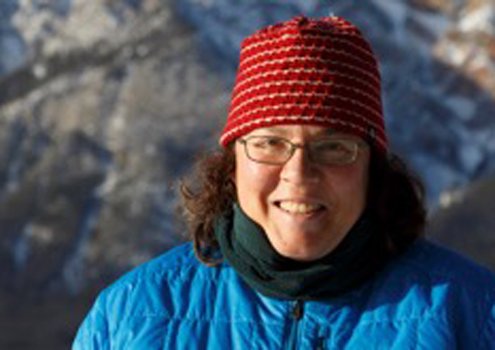Reading time: About 2 minutes
Sarah Boon warns that writing a thousand words a day is no guarantee of a book by year’s end…
Sarah Boon is a freelance writer and editor. She has published essays, book reviews, author interviews, and articles in a range of magazines and journals, including Science, Nature, Longreads, Flyway Journal, Electric Literature, and others. She trained as an environmental scientist and held a tenured position in physical geography before returning to her writing and editing roots.
I was excited to talk to Sarah Boon about how she approaches writing.
Q. Roughly how much time do you spend writing every day?
One to two hours when I can.
Q. What’s a simple activity or habit that makes you a better writer?
Journalling. It opens up my mind to new ideas and I often find I come up with solutions to particularly gnarly issues in the pieces I’m working on.
Q. What interferes with your writing?
My mental illness. On many days I just can’t write, or one hour feels really long because I don’t have the capacity to write. Some days I just have to say, “no, today is not a writing day.”
Q. How do you persuade yourself to sit down to write on days when you really, really DON’T feel like doing it?
I think about the days I can’t write because of my illness, and decide that I need to make the most of the time I have to write. I need to get my butt in the chair and get to work while I can!
Q. Is there a particular motto or saying that you’ve found helpful for writing?
One year for Christmas, my nephew sent me a framed photo that said “write” in his childish handwriting. I keep it by my desk and look at it regularly. It’s very motivating. Another saying that helps me goes something like “You’re going to be living, anyway, so why not spend that time writing?”
Q. Which stage of the writing process do you enjoy the most: researching, writing or editing/rewriting and why?
I enjoy research and editing. I love reading books for research that transport me into the life of the author (I read a lot of memoirs and narrative nonfiction) and that spark something in my mind. And I enjoy editing because it’s so satisfying when you work hard on a paragraph or section that’s been eluding you and suddenly it clicks! It feels like magic. Writing is hard. I don’t mind it, but I have to say I enjoy researching and editing better.
Q. What’s one of the best books you’ve read (either fiction or non) in the last five years?
First, James Bridle’s Ways of Being. A thoroughly engaging read about humans, computers, ecology, AI, and more. He has a particular way of braiding these topics together that you have to read it twice (or more times) to get it all. Next, Owls of the Eastern Ice, by Jonathan C. Slaght. It’s a fascinating narrative nonfiction book about his PhD fieldwork in Russia studying the Blakiston Fish Owl. Along the way he meets eccentric characters and encounters strange Russian traditions, all described in close detail. You feel as though you’re travelling with him across the remote lands of eastern Russia. Finally, Melissa Sevigny’s Brave the Wild River. It’s the forgotten story of two women who rafted the Grand Canyon in the 1950s to do a botanical survey of the area. Based on archival letters, journal entries, and more, it’s an exhilarating and fast-paced story that brings you into the action so you feel like you’re actually on the river with them.
Q. What book are you reading right now?
I’m reading Double Bind, an anthology edited by Robin Romm, about women and ambition, with essays from Roxane Gay and others. I’m finding it highly relevant to my situation—and that of many other women, and very applicable to my next book. I’m also reading Thirty Below, by Cassidy Randall, about an all-women team that summited Denali in 1970. It’s a fascinating look at the sexism inherent in the climbing community back then (which hasn’t changed much), the sheer physical and mental toughness needed to climb a mountain, and the relationships you have to build with your climbing team so that you can handle tough situations as a group.
Q. What do you think is the biggest misperception that new writers have about the act of writing?
That if you sit down and write a thousand words a day, you’ll have a book by the end of the year. They forget that those won’t be a thousand perfect words, but just words. You’ll have to take time to edit them and massage them into a coherent whole. You’ll have to rewrite, and rewrite again. So there goes your one-year book.
Sarah Boon blogs at Watershed Notes and lives and works on southern Vancouver Island, the traditional unceded territory of the Quwut’sun people.


